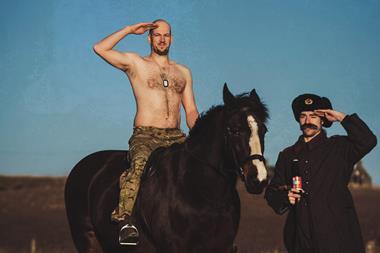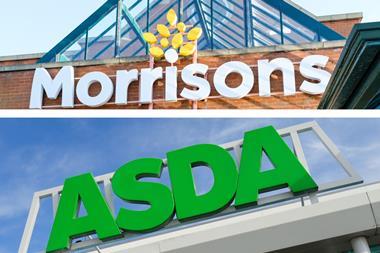Humans discovered water in 1974, when an undersea pipeline in Hawaii found not oil but H20.
Now Mahalo, marketed as older than Jesus and twice as pure, is sold to Japan's thirsty masses at 10 times the price of what they were originally looking for.
This we learned in The Foods That Make Billions (BBC One, Tuesday 9pm). Episode one revealed how water stopped being merely a fundamental prerequisite for life on earth and became something far more important, adding ballast to the nation's man-bags and giving women something to chug on suggestively with far fewer calories than a Flake.
A refreshingly candid tale was told by the category's godfathers, thankfully not triple-filtered for 15 years through a post-volcanic layer of mineral-giving bullshit. We heard of the nature-nurture battle between Evian and Pure Life, plus the bizarrely pivotal role of Formula 1 fossil Sir Jackie Stewart.
Also on duty, a grave parade of bearded marketing types, bearded science guys and bearded anthropology professors, one of whom pointed to the shamanic significance of water blessed by celebrity endorsement. A beardless Joanna Blythman, oft of The Grocer, alluded darkly to Water-Snatcher Thatcher's trickle-down privatisation.
For further colour, archive footage showed bouffant-haired berks with massive mobile phones risking electrocution by swigging Perrier at the same time. The watchwords: marketing, branding, positioning.
Less crucial, it seemed, the true providence of melted snow from the Himalayan mountain caps enriched with karmic traces of Yeti wee. A former PepsiCo boss even explained how she cunningly developed a kind of water that "wasn't élitist".
Halfway through, a boffin noted that bottled water includes not just water but a bottle a portable, near-indestructible monument to man's futility that will outlast our grandchildren by decades.
As was intended, grim nods to the industry's environmental impact had a bladder-loosening effect. But that may just have been all those images of waterfalls.
Next week retreads why corn flakes are evil.
More from this column
Now Mahalo, marketed as older than Jesus and twice as pure, is sold to Japan's thirsty masses at 10 times the price of what they were originally looking for.
This we learned in The Foods That Make Billions (BBC One, Tuesday 9pm). Episode one revealed how water stopped being merely a fundamental prerequisite for life on earth and became something far more important, adding ballast to the nation's man-bags and giving women something to chug on suggestively with far fewer calories than a Flake.
A refreshingly candid tale was told by the category's godfathers, thankfully not triple-filtered for 15 years through a post-volcanic layer of mineral-giving bullshit. We heard of the nature-nurture battle between Evian and Pure Life, plus the bizarrely pivotal role of Formula 1 fossil Sir Jackie Stewart.
Also on duty, a grave parade of bearded marketing types, bearded science guys and bearded anthropology professors, one of whom pointed to the shamanic significance of water blessed by celebrity endorsement. A beardless Joanna Blythman, oft of The Grocer, alluded darkly to Water-Snatcher Thatcher's trickle-down privatisation.
For further colour, archive footage showed bouffant-haired berks with massive mobile phones risking electrocution by swigging Perrier at the same time. The watchwords: marketing, branding, positioning.
Less crucial, it seemed, the true providence of melted snow from the Himalayan mountain caps enriched with karmic traces of Yeti wee. A former PepsiCo boss even explained how she cunningly developed a kind of water that "wasn't élitist".
Halfway through, a boffin noted that bottled water includes not just water but a bottle a portable, near-indestructible monument to man's futility that will outlast our grandchildren by decades.
As was intended, grim nods to the industry's environmental impact had a bladder-loosening effect. But that may just have been all those images of waterfalls.
Next week retreads why corn flakes are evil.
More from this column














No comments yet